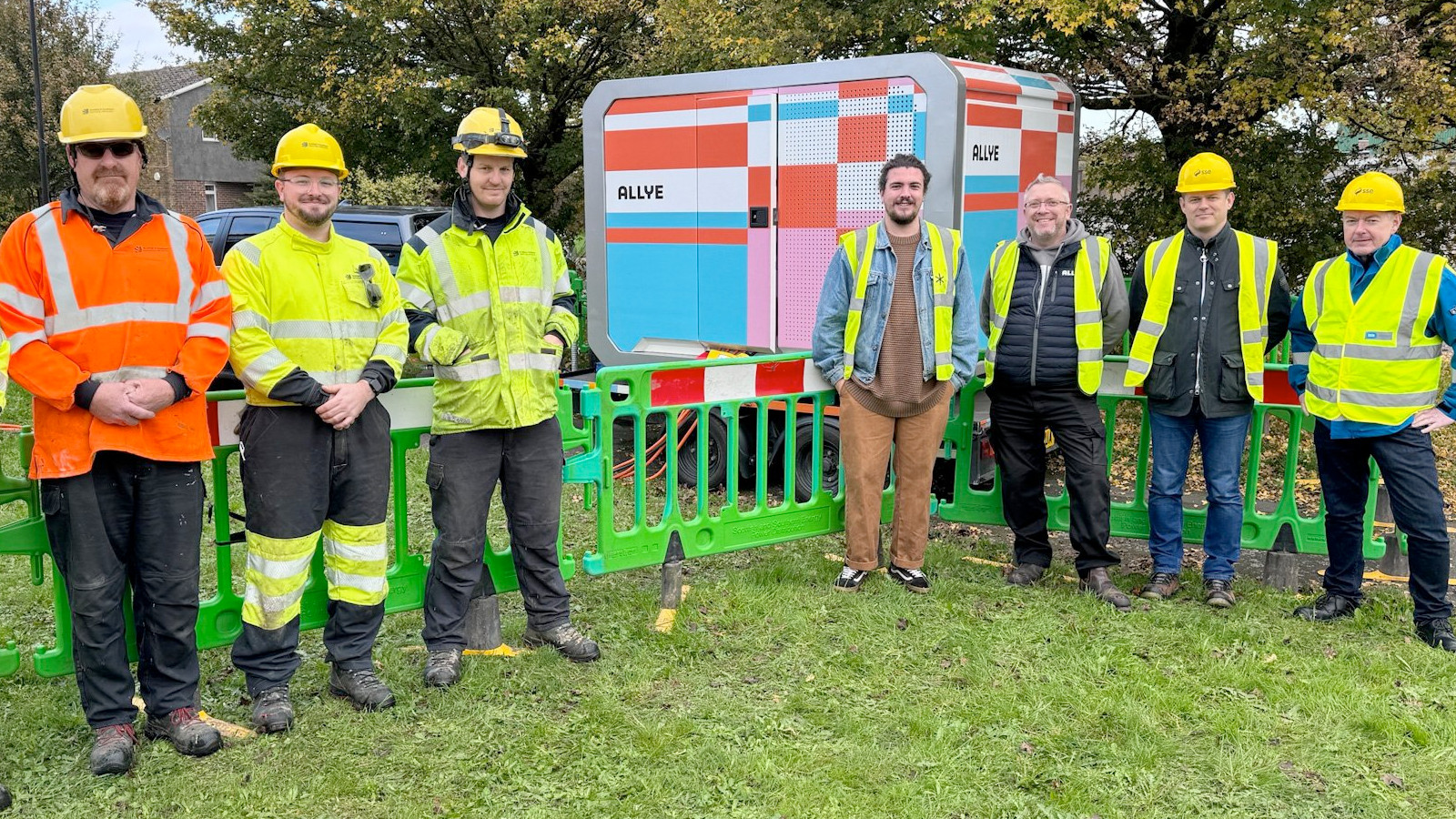Scottish and Southern Electricity Networks (SSEN) has successfully tested a large battery pack on Slough’s local electricity network, aiming to replace fossil-fuelled generators with net zero solutions during power cuts.
The trial involved connecting a battery-powered generator to the network via a substation in Slough to assess its performance during a supply interruption. This initiative is part of SSEN’s commitment to reduce carbon intensity by 80% by 2030.
Currently, SSEN deploys generators to provide power during prolonged outages. To eliminate emissions from its generator fleet, the company is exploring alternatives such as battery electric and hydrogen-powered generators. Over the coming months, SSEN engineers will test a range of these technologies to evaluate their performance, efficiency, and durability, informing a procurement process to replace the existing fleet.
In the interim, SSEN is reducing emissions from its current generators by transitioning from white diesel to hydrotreated vegetable oil (HVO), a low-carbon substitute made from waste materials like used cooking oil. Assessments indicate that using HVO reduces carbon monoxide and particulate matter emissions by 30% compared with diesel and is free from aromatics and sulphur, which are harmful to human health. Since the start of this year, SSEN says that it has cut out 752 tonnes of CO₂ emissions by using biofuels such as HVO.
Richard Gough, SSEN’s Head of Region for Thames Valley, commented, “Here at SSEN, we have a deep, enduring commitment to help deliver net zero, and we’re always looking for viable solutions to get us there quicker, expanding our experience and knowledge as we go. That’s why we’re leading the way in these extensive trials of alternatives to fuel-powered generators.
“This process has now taken another big step forward with the deployment of a battery-powered generator on the actual network, which successfully kept customers connected. This is just one of a series of trials we’ll be conducting over the next few months, where we’ll assess the suitability of a range of solutions which are new to the market.
“Having a culture where we’re always testing new tech means when the time comes to procure one of these solutions, our customers and stakeholders can be reassured we’ve run a thorough process to provide them with a safe and affordable solution.”

